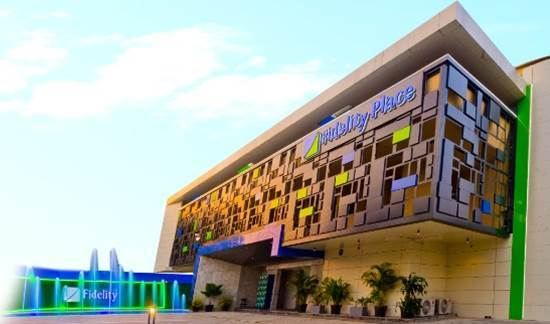Fidelity Bank’s Net Profit Rises By 102% to N46.7b
••• To Pay N15.7b Dividends
By People’s Voice Nigeria | News
Yesterday, Fidelity Bank Plc released its latest audited financial statement and accounts to the investing public.
A major highlight of the report is the recommendation of a 42.9 percent increase in dividend payout by the board of directors of the bank. In one of the highest return growths in the stock market, Fidelity Bank, which set a personal record with its first interim dividend in 2022, is increasing cash dividends payable to shareholders for the 2022 business year from N10.137 billion in 2021 to N15.7 billion in 2022.
According to a regulatory filing at the Nigerian Exchange (NGX), shareholders who received an interim dividend of 10 kobo per share earlier in 2022 will receive a final dividend per share of 40 kobo, totaling a payout of 50 kobo for the 2022 business year as against 35 kobo paid for the 2021 business year.
Key extracts of the audited financial statement and accounts for the year ended December 31, 2022 showed a double in profitability, driven by strong growth in the top line and the structural balance of the bank’s operations.
Gross earnings rose by 34.4 percent in 2022 to N337.05 billion, as against N250.78 billion in 2021. Segmental topline analysis showed that the bank’s performance was driven largely by its core commercial banking operations. Gross interest income rose by 45.2 percent from N203.57 billion to N295.58 billion, representing 87.7 percent and 81.2 percent of gross earnings in 2022 and 2021, respectively. After interest expenses, net interest income stood at N152.70 billion in 2022 compared with N94.88 billion in 2021, an increase of 60.94 percent.
Total operating expenses stood at N120.78 billion in 2022 as against N96.31 billion in 2021, an increase of 25.4 percent, lagging behind top-line growth. Expenses were driven by more than a quarter of growth in other non-personnel operating expenses, reflecting the impact of spiraling hyperinflation that characterised the 2022 business year.
After taxes, net profit rose from N23.10 billion to N46.72 billion, an increase of 102.2 percent. With these, earnings per share rose correspondingly from 80 kobo in 2021 to N1.61 in 2022.
Balance Sheet
Total assets touched the N4 trillion mark at N3.99 trillion in 2022 as against N3.28 trillion in 2021, an increase of 21.65 percent. Customer deposits, which underline public acceptance and market status, grew by 27.7 percent from N2.02 trillion to N2.58 trillion.
Ratios and Values
In the latest financial statement, key ratios underlining corporate efficiency, profitability, asset management, sustainability, and shareholder value creation, among others, all trended upward. Net Interest Income, which measures the profitability of the core banking operations, improved from N94.88 billion in 2021 to N152.70 billion in 2022.
The pre-tax profit margin, which indicates institutional profitability as a corporate entity, increased by about six percentage points from 10.05 percent in 2021 to 15.93 percent in 2022. The net profit margin also improved from 9.21 percent to 13.86 percent. The return on total equity, which denotes value creation as a business owned by shareholders, grew from 8.1 percent in 2021 to 14.86 percent in 2022.
The return on total assets almost doubled in 2022 to 1.35 percent, as against 0.77 percent in 2021. Dividend cover, which measures return sustainability and dividend outlook, stood at 3.22 times in 2022 as against 2.29 times in 2021. This implies that, in spite of about 43 percent increase in dividend payout in 2022, the bank has a stronger prospect of sustaining such an increased dividend payout on the back of its enhanced earnings.
Managing Director, Fidelity Bank Plc, Mrs. Nneka Onyeali-Ikpe, said the 2022 performance reflected the bank’s continuing focus on its execution strategy, despite global and national macroeconomic headwinds.
She pointed out that improvements in the profitability of the bank were driven by a business-wide understanding of the key goals and strategies as the bank continued to prioritise investments in human capital and technology as enablers for growth.


